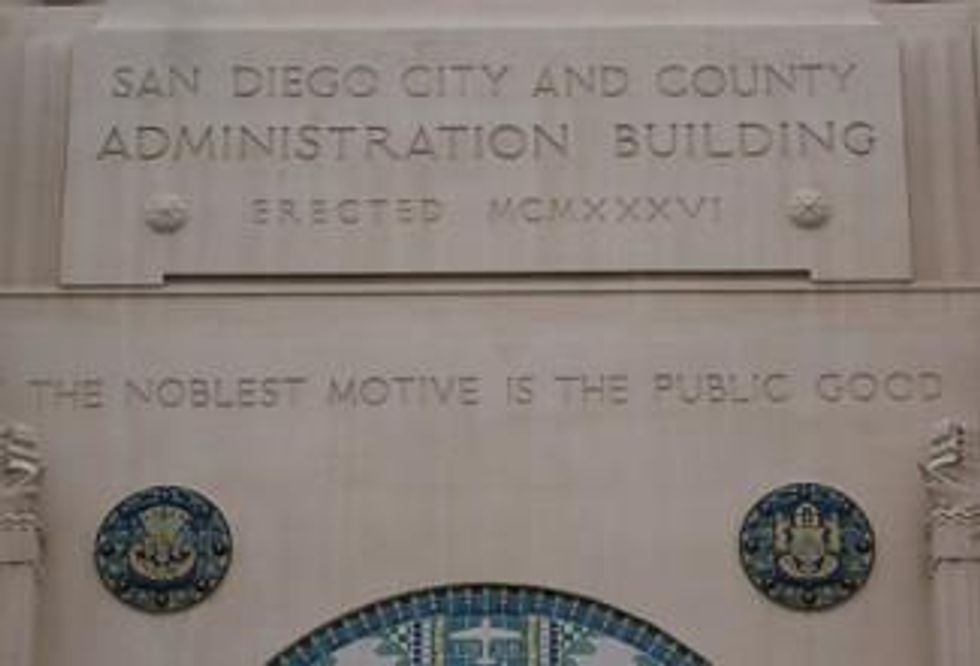Many of those who worked for the New Deal believed that they were building a civilization. They left us thousands of schools, colleges, bridges, dams, murals, parks and aqueducts, now falling into ruin, as did those of ancient Rome. To recover their vision, we must relearn an ethical language now as alien as Latin. It speaks to us from the buildings New Dealers left in their faith that we would continue to build toward greater human happiness and opportunity.
"The noblest motive is the public good," declares an inscription from Virgil on San Diego's County Administration Building. A terrazzo floor in its rotunda proclaims, "Good government requires the intelligent interest of every citizen."
A Deco relief of St. George slaying the dragon of ignorance on Berkeley High School bears a text panel announcing, "You shall know the truth and the truth shall make you free." That, after all, was what the public education we are told we can no longer afford was ideally all about.
All of these structures share a common origin: They mushroomed in the brief spasm of public building activity launched by President Franklin D. Roosevelt's New Deal. They were designed to lift the country out of the Great Depression by giving millions work, but they did something else as well: They speak to us in the language with which Roosevelt infused the nation in order to keep it united during that economic calamity.
A generation had to pass before millions so took for granted the social benefits and security bestowed upon them by the New Deal that they could elect an equally accomplished communicator devoted to its repeal. When Ronald Reagan told Americans that government is not a solution but the problem itself, he corroded the very foundations of democracy by which "we the people" formed "a more perfect union." Whereas FDR spoke of government in the first-person plural, Reagan and his acolytes have done so in the third person, not as "we" but as "it" and "them." By making government and its employees the enemy, Reagan made a rhetorical shift that has withered the very notion of social progress once synonymous with the United States.
In his 2005 book, "Going Postal," Mark Ames notes that the attack upon public servants began even before Reagan with the partial privatization of the U.S. Postal Service in 1971. The onslaught has snowballed since then, mounting now to open season upon "greedy" teachers, librarians, nurses, social workers, and even first responders in Wisconsin and elsewhere.
As the New Deal's enemies have vilified the public good to favor good for the private sector, Virgil's declaration has grown virtually incomprehensible. Talented men and women once flocked to public service, inspired by Roosevelt's insistence that "the test of our progress is not whether we add more to the abundance of those who have much; it is whether we provide enough for those who have too little." We are currently flunking that test.
Whether we build a civilization worthy of the name or Dodge City depends upon the language that we choose.

